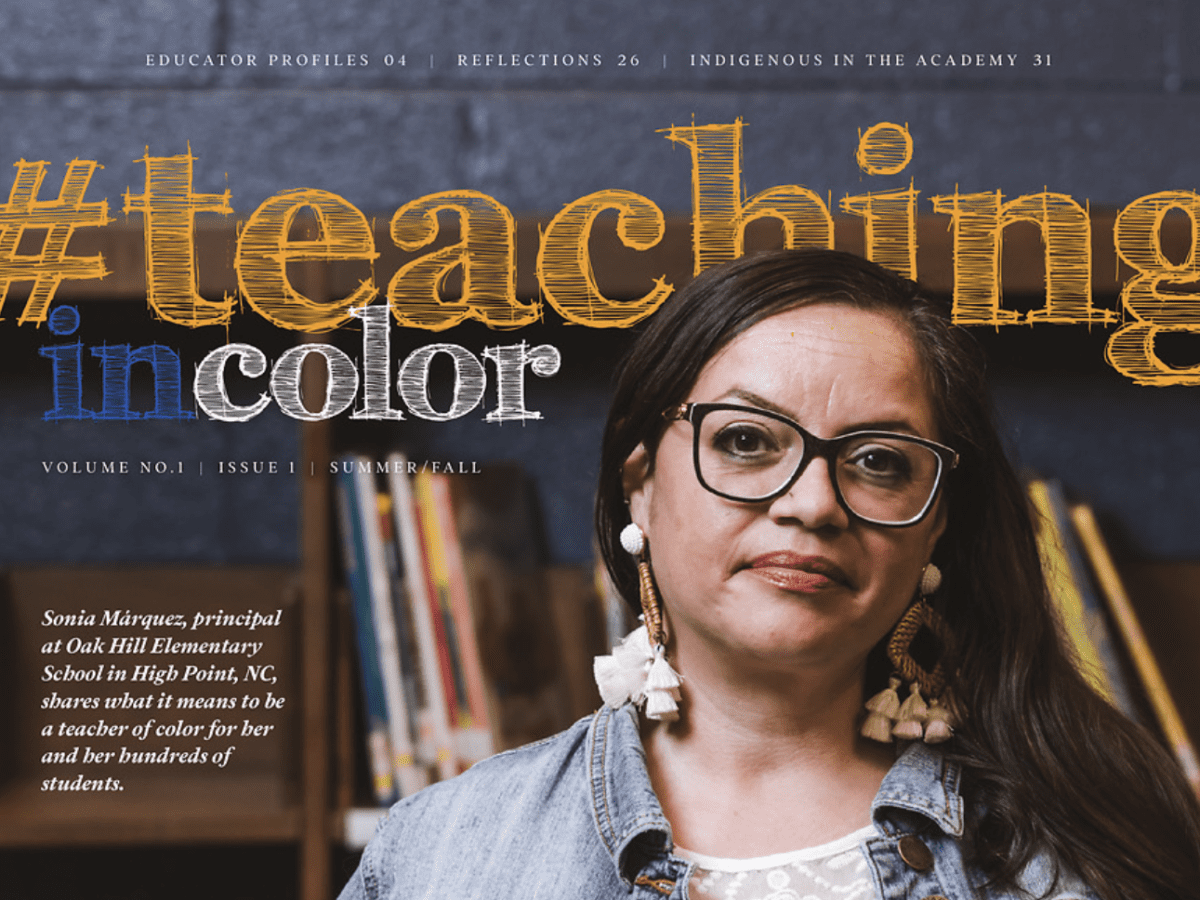
Ms. A. Jones was my second grade teacher. We had to use her first initial to distinguish her from another teacher with the same last name, but she stood out to me for other reasons. She had brown skin like me, soft black curls like the women in my church, and I was delighted to be in her class, to follow her through the halls.
While my memory has faded a bit, I remember her science lessons (taking us outside to draw the clouds or growing seedlings in a styrofoam cup), her reward system where we could get a prize from a box for good behavior and good grades, and her class play where I was chosen for the lead role. I slightly recall my character being a little teddy bear that could talk, but what has stayed with me is how Ms. A. Jones helped me believe that I, a little human, had a voice.
She made me feel safe being myself. She made me think about how things worked. But mostly, she just affirmed me and my talents. I felt like I belonged, that she saw me, that her attention and care were not awkward or an exception, just the norm.
My formative years were filled with teachers of color: Ms. Mason in fourth grade, Ms. Black in fifth, Ms. Williams in eighth. They were women, who — like the good books they recommended me reading — were my mirrors and windows. I could see myself in them and they showed me the world.
I’m one of the lucky ones.
In K-12 public education today, most teachers are white women, despite students of color being a majority in public schools. White teachers represent about 80% of the teaching force in North Carolina compared to 15.3% for Black teachers, 2.7% for Latinx teachers, .9% for Asian teachers and .8% for American Indian teachers, according to a report from the state’s DRIVE Taskforce. Some students in North Carolina have never had a single teacher of color.
In its previous policy brief, the Center for Racial Equity in Education explains how these numbers are about more than just optics; they are about the power of representation in the classroom and the need for more intentional recruitment and retention efforts for Black, Indigenous, Asian, and Latinx educators.
Having an educator of color has a wide impact. Teachers of color have been known to provide strong mentoring, more referrals for gifted programs, less referrals for discipline, and their presence has been linked to increased student academic performance, confidence and educational aspirations. For Black students with Black teachers, there is a significant increase in math and reading achievement, and one study found that Black students who had a Black teacher in kindergarten through third grade were more likely to graduate from high school and go to college. Researchers at the Urban Institute report that Latinx elementary students with Latinx teachers are also more likely to see increased academic outcomes.
We explore these facts and more in the first issue of #TeachingInColor Magazine, a publication aimed at sharing the stories, insights, challenges, and celebrations of North Carolina’s educators of color.
With profiles of teachers from across the state, as well as a column from Dr. Brittany Hunt about the first time she saw an Indigenous student’s name on her college roster, the issue brings awareness to the unique joys and demands that come with being a teacher of color. The magazine spotlights the work being done in pre-K through college classrooms, from rural Robeson County to Elizabeth City and the suburban and urban districts of the state. Told through the voices of the educators themselves, the experiences are rich and real, as are their expertise and commitment to the students of this state.
I encourage you to read the inaugural issue, to share it widely — because just as we need more teachers of color, we need to hear more of their stories.
Recommended reading



